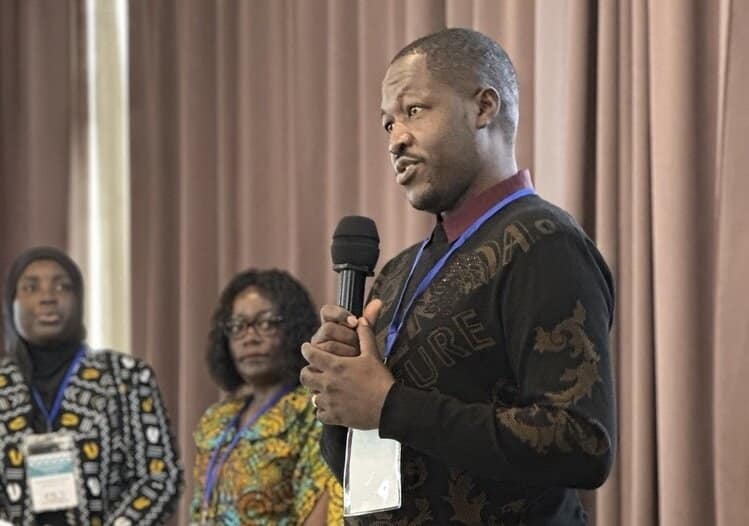Side by side they sat before more than 100 mostly young people gathered on World Contraception Day for a lively conversation about sexual and reproductive rights and leadership. These two women, from two different generations, two different worlds really, shared what they see now and in the future for family planning.
On the left, Tlaleng Mofokeng, a young medical doctor in South Africa, an activist trying to make talking about sex less taboo and more empowering for women and author of a new book, “Dr. T: A Guide to Sexual Health and Pleasure.”
On the right, Susan Krenn, executive director of the Johns Hopkins Center for Communication Programs, who has spent 35 years leading endeavors around the world, many of them focused on ensuring that women everywhere have access to modern contraception.
The event was dubbed a “Powerful Conversation on Leadership” and sponsored by Bill & Melinda Gates Institute for Population and Reproductive Health at the Johns Hopkins Bloomberg School of Public Health.
Dr. T asked Krenn what advice she has for young people who want to take on what is, in many cultures, still a taboo subject: Their own reproductive health and rights.
“She has a tattoo on her arm,” Krenn said, pointing to Dr. T. “It says: Be bold. I say: Don’t be afraid. You can make a difference out there. Everyone has the power of our own voice …
“Don’t wait to be invited. Get in there and be involved. You have nothing to lose.”
Dr. T talked about the importance of language in trying to change social norms around sexual and reproductive health. In indigenous languages in her community, she says, many of the words for genitals and sexual acts sound vulgar and have negative connotations. She says this language bias hurts women when they try to negotiate around sex.
Dr. T’s outspokenness is her strength. She isn’t afraid to push the boundaries – as long as it means women have access to modern contraception options. She was taught these values from a young age, she told Krenn.
Her mother didn’t say to her: Don’t get pregnant or I will disown you. Instead, she said, what are your big plans for your life? Then, she followed up, how would having a baby fit into that?
Dr. T spoke about how she often feels like one young person acting alone, counseling individuals about their relationships and their health and power dynamics. She uses Twitter to get out her message as well a newspaper column and a radio show.
“My message is the same and consistent, no matter what space I’m in … a quest for access to [reproductive health] services,” Dr. T said. “I only do things that will lead to increased access for women.”
But she says she wishes that she had more of a team working alongside her.
“A lot of us young people are working on our own and not enough with each other,” Dr. T said. “We’re all fighting for the same thing, young women who need contraception.”
“A leader is only as good as the people around them,” Krenn told her.
The two women also talked about supporting young women and turning them into future leaders. They also talked about the challenges that come with working in an area like family planning that in many circles remains difficult to talk about.
It’s not just that there are moral judgments made about women who want to protect themselves from disease and pregnancy or who want to find pleasure in sex. It’s even that many doctors still don’t, for a variety of reasons, help women make informed family planning choices.
“When I train doctors and nurses, I tell them you have a chance to undo a lot of negative ideas about contraception,” Dr. T said. “You need to affirm the person’s choice about contraception.”
Even if they decide they don’t want to use contraception. It’s possible, Dr. T says, that a woman is making decisions about family planning based on hearsay or bad advice from friends or relatives. “It’s not about judging women for not wanting to use contraception,” she said. “It’s about finding out the reasons and fixing misunderstandings.”
Krenn agreed, saying that much of CCP’s work in family planning is figuring out the social norms and the political landscape of a place before deciding what kind of communication and community engagement will best work to change behavior.
Some in the room were young family planning leaders from around the world, more than a dozen of them, like Dr. T, recipients of the 120 Under 40 award from the Gates Institute.
“We are very focused on developing the next generation of leadership in this space,” Krenn said. “You are defining leadership now. It’s a whole new world out there. You have the opportunity to set the framework for the next 10, 20 years.”





